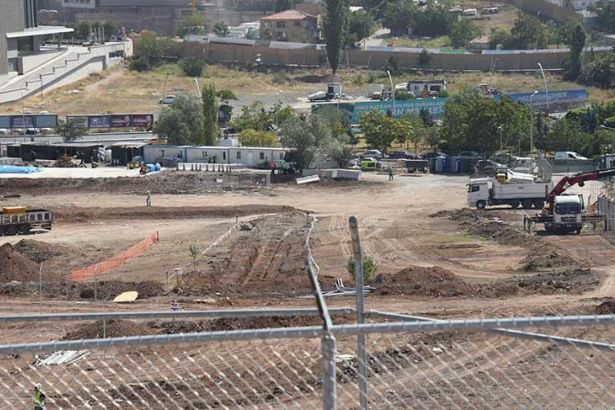Atatürk Forest Farm land sold to US Embassy in Ankara

37 thousand square meters of Atatürk Forest Farm (AOÇ) land has been sold to the US Embassy in Ankara, Turkey for the construction of a new embassy building. The US Embassy had decided to move its building following the terror blast in 2013, killing the security officer of the embassy and severely wounding a journalist, Didem Tuncay.
The new embassy campus will have a parking lot and social facilities. It is reported that the construction work has already started, and that the construction area has been fenced.
Tezcan Karakuş Candan, the chairperson of the Chamber of Architects Ankara branch, commented on the sale, saying that the land in question had been granted to Gazi University as an educational area after the military coup in 1980, who had handed it over to the state-owned housing development administration of Turkey (TOKİ), notorious for rent-seeking urban renewal projects. Finally, TOKİ administration has sold the land to the US embassy, Candan added. She also noted that they asked for the sales protocol as part of the right to information, and yet it had not been provided on account of "trade secret". TOKİ administration has only provided an unsigned and unsealed protocol after the Chamber of Architects had appealed to the court, Candan said.
AOÇ is a first-degree protected natural site and one of the early symbolic public spaces of the Republic of Turkey, dating back to 1920s. A significant part of AOÇ had already been destroyed with the construction of Recep Tayyip Erdoğan's presidential palace, the mayor Melih Gökçek's extravagant amusement park project Ankapark, and Ankara boulevard running through the forest. In 2014, 50 acres of AOÇ had been destroyed for the construction of a new presidential complex for Erdoğan despite several court decisions for the termination of construction. Hence the palace is notoriously called "Kaçak Saray" in Turkish, meaning an illegal palace.




